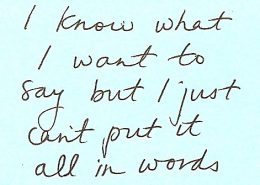 https://socialanxietyireland.com/wp-content/uploads/2018/09/I-know-what-i-want-to-say-but.jpg
577
471
Odhran
https://socialanxietyireland.com/wp-content/uploads/2018/03/sai.png
Odhran2018-09-25 15:57:552018-10-05 20:36:00What I Want To Say.
https://socialanxietyireland.com/wp-content/uploads/2018/09/I-know-what-i-want-to-say-but.jpg
577
471
Odhran
https://socialanxietyireland.com/wp-content/uploads/2018/03/sai.png
Odhran2018-09-25 15:57:552018-10-05 20:36:00What I Want To Say.affecting approximately 13.7% of Irish adults at any one point in time.
Menu: Social Anxiety
Overview: Social Anxiety
Sometimes known as social phobia, social anxiety disorder (SAD) is a surprisingly common form of anxiety disorder that causes an individual to experience intense anxiety in some or all of their social interactions in everyday life. Given this, social anxiety can be defined as the persistent fear of one or more social or performance situations in which one is exposed to unfamiliar people or to possible scrutiny by others, and where exposure to such situations provokes intense anxiety.
It should be noted that some level of anxiety in social situations at times is very normal.
The Individual
Individuals who suffer from social anxiety typically have a stronger than usual desire to make a good social impression. We all like to think we are making a favourable social impression! Unfortunately, they also fear that they are not as good socially as other people and will fail to come up to an acceptable standard of social behaviour – that they will not make the favourable impression they so crave.
It should be noted that social anxiety is not a deficit in social skills. These factors then combine in such a way that when in social company they often believe that other people are closely observing them – that they are in some way on display or the centre of other people’s attention. Unfortunately, this ‘attention’ is not deemed favourable – quite the contrary. The reality is they often believe that other people think poorly of them, that others are judging them in a critical fashion or that they are behaving in ways that others find unacceptable or ridiculous. Being in this frame of mind leads also to intense self-consciousness and feelings of shame and embarrassment. The urge is to hide or escape the social situation evoking this sense of being scrutinised and judged.
In this sense, social anxiety can be understood as an intense fear of embarrassment. Individuals with social anxiety experience a wide range of unpleasant symptoms of anxiety from muscle tension, increased heart rate and dizziness to nausea, dry mouth, and breathlessness. However, of particular concern to them in social situations are the clearly visible signs of anxiety such as blushing, perspiring, shaking and stammering. For the socially anxious individual these visible symptoms of anxiety can also be potentially observed by others who may as before judge them as unacceptable or in some way ridiculous.
The Social Situation
The range of social situations that are experienced as anxiety provoking for individuals with social anxiety vary significantly. They may be limited and restricted to discrete, clearly defined social situations e.g., eating in public, public speaking, expressing an opinion to a group, or diffuse, involving almost all social situations.
Another distinction often observed is that some individuals with social anxiety particularly fear unstructured interpersonal situations like going to a party and engaging in ‘small talk’ while others fear structured performance type situations making a toast or writing in front of others.
Individuals with social anxiety tend to either avoid or endure with severe anxiety or distress these much-feared situations. Because the anxiety is so intense and distressing, it’s much easier just to stay away from social situations and avoid other people altogether. Individuals can isolate themselves to such an extent that they give up work and remain at home.
In some circumstances their social contact can narrow down to their immediate family or in extreme circumstances to no one at all. This then can lead to feelings of sadness and even depression. Others can turn to alcohol in an attempt to ease their social discomfort and this can lead to serious problems with alcohol misuse and dependency.
Unfortunately, the avoidance, anxious anticipation, or distress experienced in social situations interferes greatly with the individual’s normal routine at work, in school, during social activities, and/or in relationships.
Most individuals with social anxiety have jobs that are well beneath their capabilities and capacities because of their social concerns: the nightmare of job interviews, the agony of working in a job where there is a lot of public contact or the dread of being promoted to a position of authority over other or that involves team meetings or formal presentations.
It is important to note that individuals who suffer from social anxiety do recognize that their fear is unreasonable and/or excessive, but try as they do they cannot simply stop themselves having these irrational or excessive concerns. Finally, without proper treatment social anxiety tends to develop into a longstanding and unremitting condition.
CBT Group Treatment
The programme, which largely adopts a cognitive
behavioural model, is conducted over fourteen weeks.
If you wish to apply for a place on our Social Anxiety
Programme please read and follow the instructions in
the section ‘Process of applying for a place in our
Social Anxiety Programme.’
We Need Your Help!
Donations
We’re 100% non-profit and rely on the good will of people like you to enable us to continue to provide this invaluable treatment for so many people throughout Ireland.
100% of your donation goes towards helping people with Social Anxiety Disorder.
Latest News & Events
With the support of people like you, we’ve been able to help thousands of people throughout Ireland. Keep up to date with all things SAI via our blog with weekly updates, news, service updates and helpful information.



